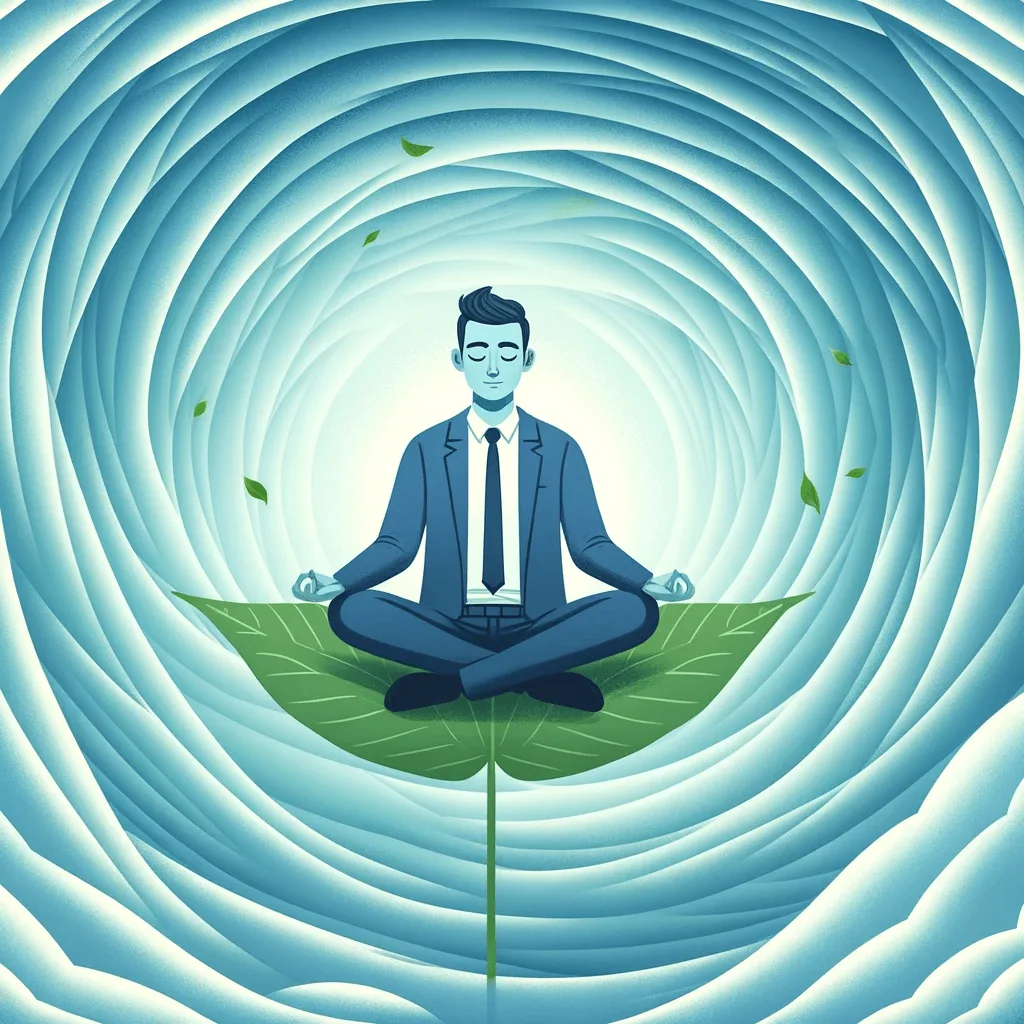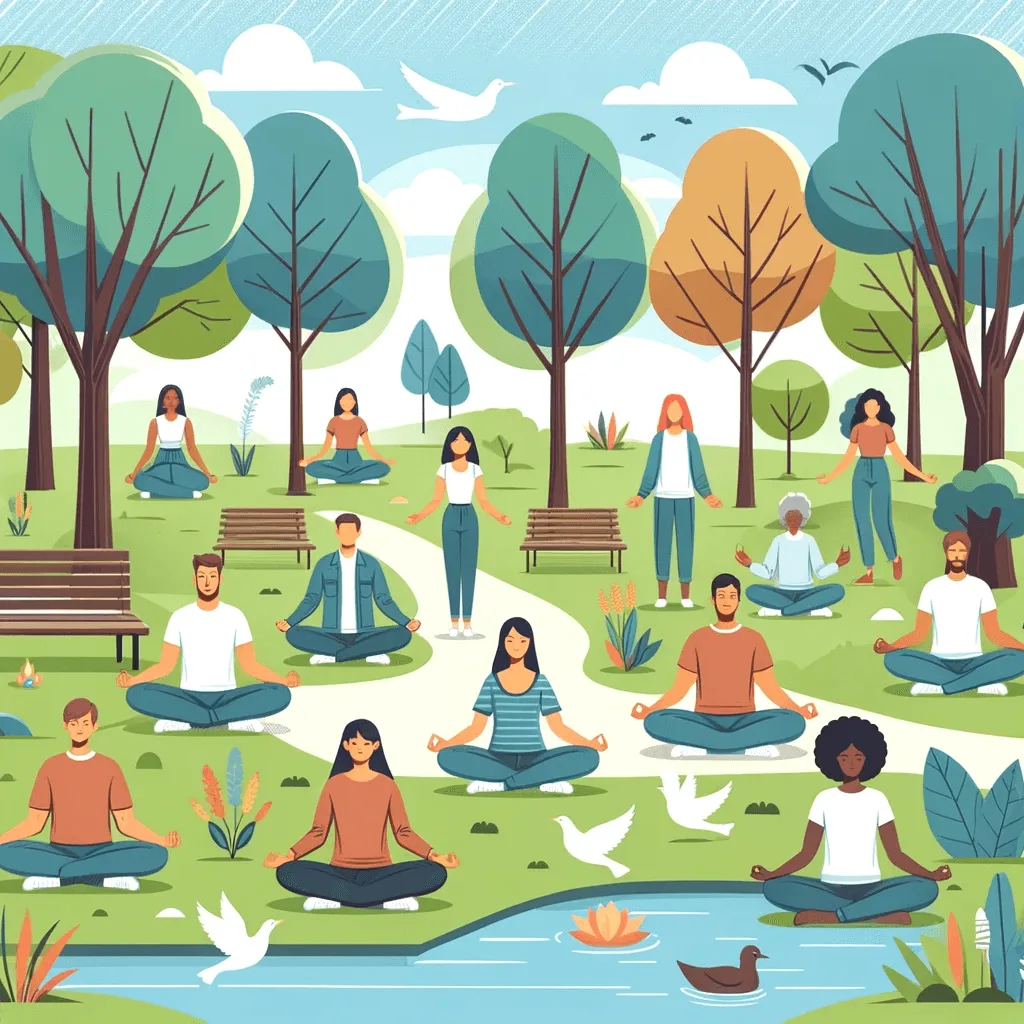
Staying Present: Mindfulness in Motion
In an age where multitasking is more a necessity than a skill, the world doesn't just walk; it runs. With schedules crammed from sunrise to sunset, staying mentally anchored in the present has become akin to catching a leaf in a whirlwind. Mindfulness meditation offers a respite, an oasis of calm in the desert of chaos. By training the mind to focus on the current moment, mindfulness can reduce stress, enhance performance, and lead to better decision-making
article by Hina Kurosawa
Fundamentals of Mindfulness
Mindfulness meditation is the practice of paying full attention to whatever is happening around us – without reacting or becoming overwhelmed. It involves a conscious direction of our awareness. We return to the present moment to find peace, no matter what life throws at our doorstep. It's not about silencing our thoughts; it's about observing them without judgment.

The Practice Playground
Initiating into mindfulness can be as simple as dedicating a few minutes each day to focus on your breath. Find a quiet space, set a timer, and just breathe. As you inhale and exhale, notice the rise and fall of your chest, the sensation of air filling your lungs, and the sounds around you. When thoughts intrude, acknowledge them, then gently bring your attention back to your breath.
Beyond Breathing
Mindfulness isn't limited to meditation; it can be woven into everyday activities. Engaging fully with your senses while eating, listening intently to a friend without planning what to say next, or feeling the water on your skin during a shower are all acts of mindfulness. It's about being fully engaged in the here and now, which can turn ordinary experiences into revelations of joy and understanding.
Mindful Roadblocks
As with any discipline, obstacles are part of the mindfulness journey. Distractions will arise, and your mind will wander. This is natural. The key is to recognize when your thoughts have drifted and gently guide them back to the present. It's not about how often you lose focus, but how often you return to it.
Long-Term Gains
The cumulative effects of daily mindfulness practice are profound. Studies have shown that it can improve mental health by reducing symptoms of anxiety, depression, and insomnia. On a physical level, it's linked to lower blood pressure, improved immune function, and pain relief. Mindfulness can transform your approach to life's challenges, fostering resilience.

Integrating Mindfulness
Making mindfulness a habit requires commitment. Start small, with just a few minutes a day, and gradually increase the time as you become more comfortable with the practice. Remember, mindfulness is a journey without a destination. Each moment is a new opportunity to be present.
Published: 11/9/2023
Modified: 11/9/2023
More predictions
Come back here soon to learn more about yourself and your future





